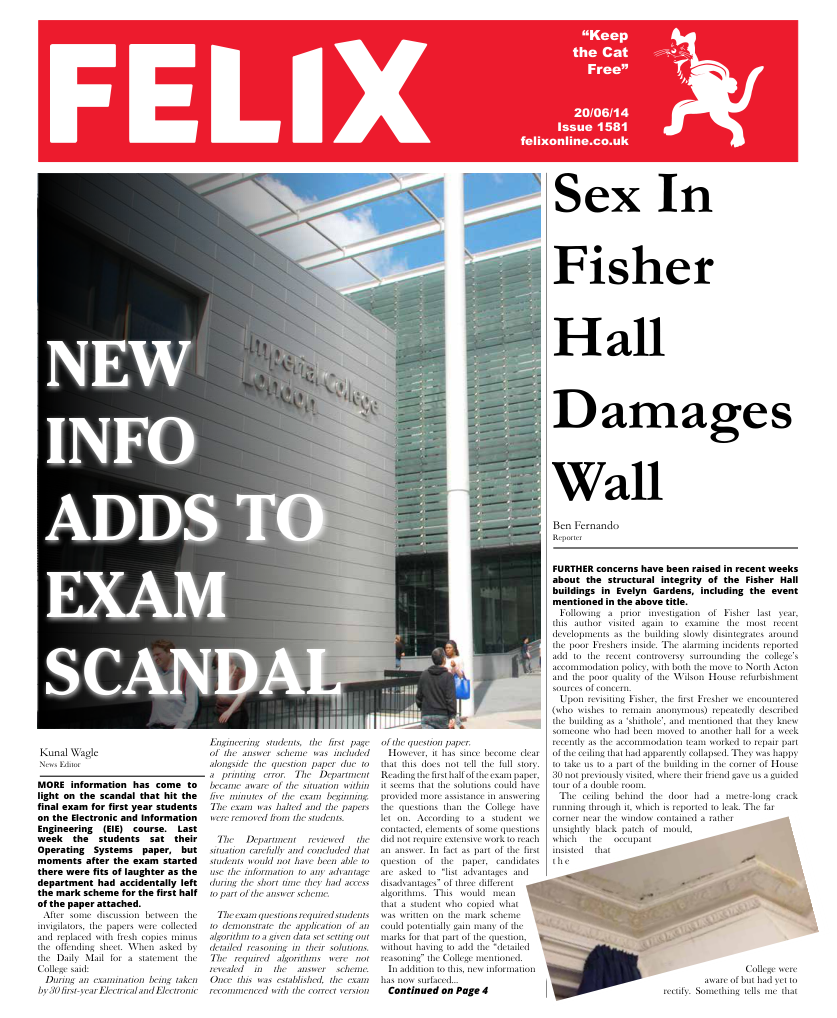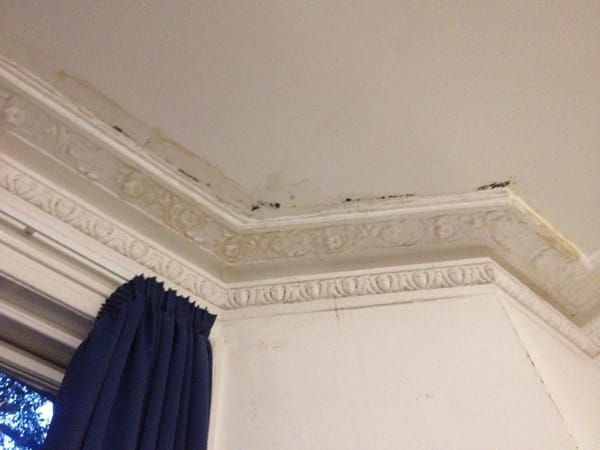New Info Adds to EIE Exam Scandal
More information has come to light on the scandal that hit the final exam for first year students on the Electronic and Information Engineering (EIE) course.

More information has come to light on the scandal that hit the final exam for first year students on the Electronic and Information Engineering (EIE) course. Last week the students sat their Operating Systems paper, but moments after the exam started there were fits of laughter as the department had accidentally left the mark scheme for the first half of the paper attached.
After some discussion between the invigilators, the papers were collected and replaced with fresh copies minus the offending sheet. When asked by the Daily Mail for a statement the College said:
During an examination being taken by 30 first-year Electrical and Electronic Engineering students, the first page of the answer scheme was included alongside the question paper due to a printing error. The Department became aware of the situation within five minutes of the exam beginning. The exam was halted and the papers were removed from the students.
The Department reviewed the situation carefully and concluded that students would not have been able to use the information to any advantage during the short time they had access to part of the answer scheme.
The exam questions required students to demonstrate the application of an algorithm to a given data set setting out detailed reasoning in their solutions. The required algorithms were not revealed in the answer scheme. Once this was established, the exam recommenced with the correct version of the question paper.
However, it has since become clear that this does not tell the full story. Reading the first half of the exam paper, it seems that the solutions could have provided more assistance in answering the questions than the College have let on. According to a student we contacted, elements of some questions did not require extensive work to reach an answer. In fact as part of the first question of the paper, candidates are asked to “list advantages and disadvantages” of three different algorithms. This would mean that a student who copied what was written on the mark scheme could potentially gain many of the marks for that part of the question, without having to add the “detailed reasoning” the College mentioned.
In addition to this, new information has now surfaced over the circumstances after the mistake had been discovered. According to one student, once the invigilators had realised there was a problem, they did not immediately collect all of the question papers. In fact, whilst the invigilators discussed their course of action, the students chatted about the exam paper and the answers (which they still had at this point) with their peers for approximately ten minutes. The College’s claim that students would not have been able to use “the information to any advantage” is therefore questionable.
Furthermore, when the new question papers were provided, the students were not forced to use new answer booklets, meaning that those who managed to copy down answers or hints before the question paper was removed could have gained an advantage.
Another dimension of the situation involved the students who had extra time to complete the paper. Operating Systems was part B of a two-part module that also included Computer Architecture. This was sat in the morning and was then followed by a 30-minute break before Part B (the one with the mark scheme present). However, as the extra time students finished Part A, the other students had returned from their break, meaning that the students who were eligible to receive extra time were present for the mishap, and were able to listen to or take part in the discussion of the paper and answers before taking their break, in which they could potentially study the topics they knew were on the exam.
Having looked at the relevant documents, it would appear that the entire module, represented by papers A and B, is worth 7.5% of the first year EIE course.
When speaking to Felix about the exam paper, another student said, “[the department] wrongly thought we couldn’t extrapolate the answers from the mark scheme so it was probably wrong for the exam to go ahead”.
Felix feels that it is unfair to unduly criticise the staff for a simple mistake.
However we believe that the students should be informed in more detail about any repercussions, and that the overall situation could have been handled significantly better when it first arose.







